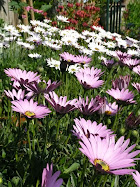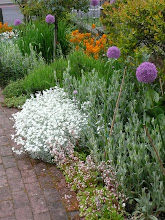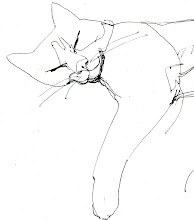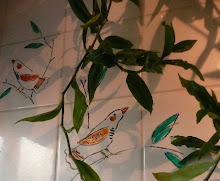Yesterday, my reading of a recent post in Brave New Words (http://brave-new-words.blogspot.com) entitled The Best Translations ? (21/10/08) prompted me to look at the list of the 50 best translations from the last 50 years, as determined by the Society of Authors (http://www.societyofauthors.org/). This in turn has caused me to reflect on the criteria used to judge translations.
Translations are of course sometimes deemed good or bad according to how loyal they are to their source text, or how literal they are. This question of literal versus free translation has long been a concern for translators and readers of translation alike. Certainly, its a tricky issue, not least because how close a translator should adhere to the original text, respect the author's voice or conversely modulate the translation to suit the reader depends on a number of variables including the purpose of both the original text and its translation. Both approaches therefore have their potential merits.
Whatever, reflection on this subject has reminded me of comments on literature by the French philosopher Jacques Derrida, which I studied in my final year at university. I must say, I don't find Derrida's writings particularly transparent. Nevertheless, in an interview conducted by Derrek Attridge, documented in English under the title This Strange Institution Called Literature (published by Routledge), Derrida talks about literature as a repetition, a reiteration of an event (real or conceptual) and likewise he evokes the aptitude of literature towards transcendental reading. He discusses the instability of the meaning of a literary text, which, once in the public domain, is subject to a multitude of interpretations that result from the dialogue that the text prompts. A text is therefore organic, it's a living creature that has the capacity to evolve and to take on an existence entirely independent of its referent, i.e. its author (an idea reminiscent of Barthes' Death of the Author). In this respect then, the translator can play a role in this marginalization of the author as well as the text's liberation from its author's dominance and the evolution of its meaning.
So, it strikes me that a literal translation that is particularly conscience of the author's voice and presence in this living organism, this beast that is their writings, could be compared to the work of taxidermist who seeks to preserve at least the appearance of the animal in its original state, whilst a free translation submits to and willingly engages in the forces of evolution that must surely act on any text in the public domain. But again, none of this allows us to say which is right, a literal or free translation. Both fulfil a function. This is why for me, defining a translation as good or bad purely by the degree to which it acknowledges the author's voice, signature, presence, is misleading as surely the worth of a translation, beyond the basic issues of accuracy, should be determined according to its appropriateness. This is why I think when judging a translation it might be more constructive to give greater weight to the question of how much it satisfies the needs that prompted its necessity.
Ouf ! Heavy cogitations ! And sadly, I have no images to offer to lighten the tone of today's post as my usual computer has died on me. Needless to say, my thoughts today will be less on what makes a good translation and more on the practicalities of retrieving my precious files from the dark, mysterious depths of my laptop. Wish me luck !




















No comments:
Post a Comment